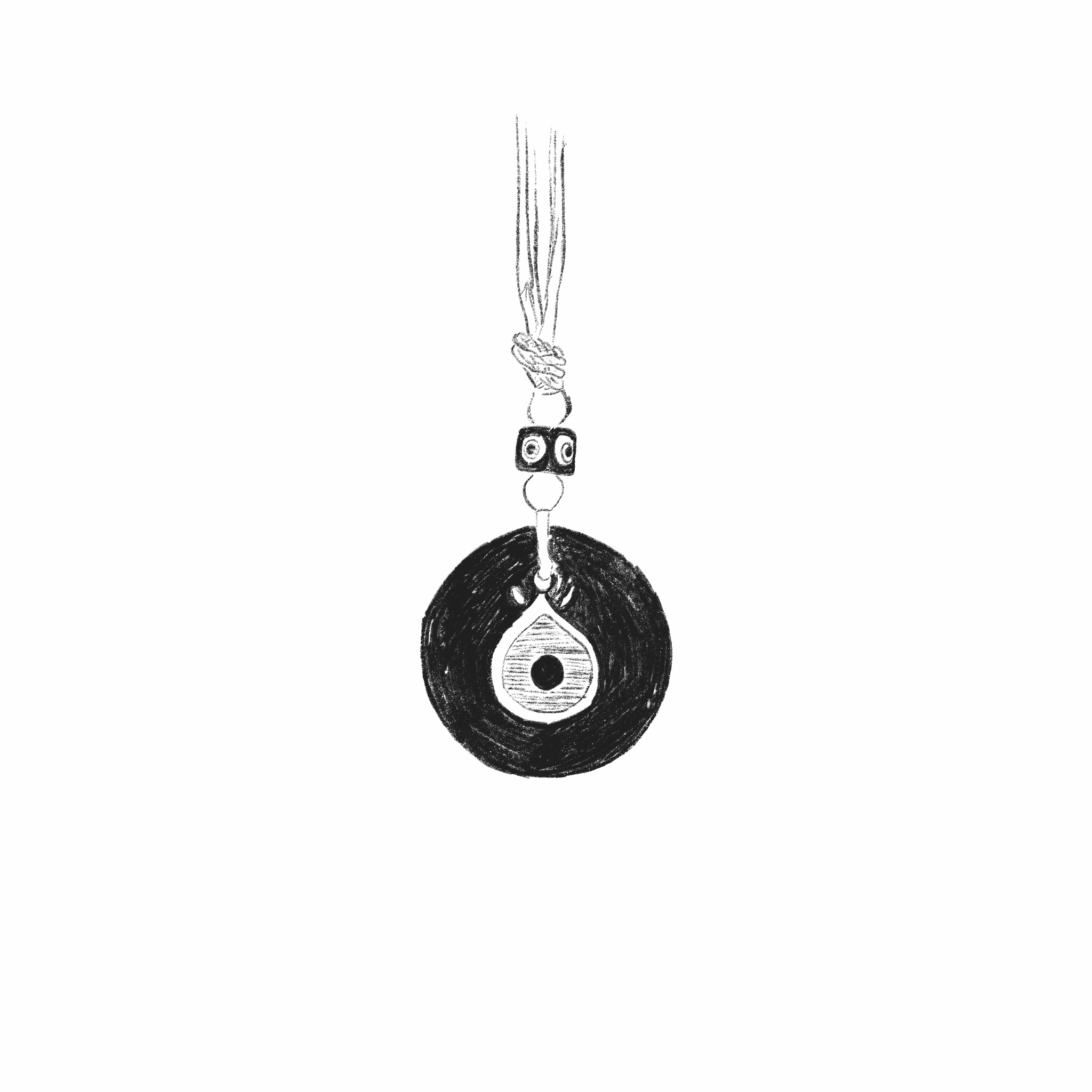Mean eyes
April 17, 2025
 Henry Abbott
Henry AbbottContent warning: This Talk of the Quad contains depictions of an eating disorder that may be upsetting to some readers.
We all want to feel good about ourselves. And in many ways, I’m incredibly proud of the person I am. I’m brave and kind to those who deserve kindness. I’m a dedicated writer and visual artist.
But… (there’s always a but!)
But, over the past few years, I looked in the mirror or at pictures of myself with the opposite of kindness. Instead, I looked at myself with two mean eyes. What they saw was a mess of visual flaws: my face puffy, the bones in my ankles non-existent. My torso too thick. My skin imperfect. Seeing these, a small tectonic plate inside of my gut would slip. Just to avoid those eyes, I’d shower in near darkness; I avoided mirrors. I squirmed at the thought of having my picture taken. I itched to get away from someone if they stood too close to me, in case they too had mean eyes.
When I broached this topic with a friend, he expressed a similar feeling that began in middle school: Suddenly, he became not skinny “enough.” He began to skip meals. To this day, he finds himself skipping meals every now and then. In middle school, I managed to evade that feeling. Back then, I snapped silly pictures of myself and then sent them to friends without thought. I was skinny and athletic. I didn’t use social media except to watch Minecraft videos on YouTube.
Then, life happened—time passed. My body changed. And, in my freshman year at Bowdoin, I downloaded Instagram. Fitness influencers flooded my feed. Beautiful, drop-dead gorgeous women posted pictures that received hundreds of comments. These women were, by and large, thin or lean. To my eyes, their thinness, and the “snatched” waists of Disney princesses I grew up watching, reinforced what much of Western films and media tell us: that the beautiful come in one form.
Shortly afterwards, I realized I didn’t—or no longer—fit that form. I received a photo from one of my roommates; it was of me tossing a frisbee near the College’s baseball diamond, where a game had been underway. I’d been ecstatic during it, but now all I could see was how the Adidas soccer shorts I’d been wearing clutched my thighs so tightly, I could make out the contours of my underwear. Once upon a time, those shorts hung loose on me. But in the span of five months, my legs had become much thicker—like tree trunks. A voice hissed in my head. I was incredulous, immediately ashamed. I was embarrassed that I could’ve smiled so happily while looking like that. And then I began to see other things in the photo: my face puffy and round, my wrists thick. It rocked me to my core.
In the years following, I lifted weights in pursuit of being leaner, of being “enough,” of being “attractive.” At the end of just last semester, a close friend told me, after I mentioned I’d finished a lift, “Oh, you lift?” I couldn’t manage to laugh off their genuine surprise: Clearly, I didn’t look like I’d been lifting for nearly three years. I was still thick. Soft.
About two weeks later, while I was home for winter break, my mom asked, slowly and gently, “Do you think birth control is helping with your headaches?” She added, “I’ve noticed you’ve really been struggling with your weight, and birth control can make that harder.” I froze, unable to say even a word. Never had my weight been something discussed aloud by my family. Shame flooded me—as did something new: rage. That night, as I stood in front of the bathroom mirror waiting for the shower to turn hot, rage fomented into hate. Hate—not at my own body—but at my eyes, and other people’s eyes.
The girl in the mirror hadn’t been “skinny enough” or her skin “clear enough.” Her legs had been “too thick.” She was too much, or not enough, because of a fantasy unrealistic for most women. Reality is equally beautiful to—if not more beautiful than—fantasy precisely because it is real. Beautiful things are messy. And it’s true: Beauty lies in the eye of the beholder. Every time I look in the mirror, I have the power to decide that I’m beautiful. The same kindness I give to others, I now share with myself and my body. Just in the nick of time! Right before graduating, I’ve realized: I am already more than enough.
Admittedly, I often have to remind myself that my softness, fat and cellulite are all beautiful because they are mine. In the mornings, I’ve taken to fully relaxing my belly in front of the mirror; I then rub it in a clockwise motion (apparently this is good for digestion). My belly, bulging over my waistband, feels soft, warm and good. Rightly curved, like Mother Earth. It’s true: Soft things can be easily harmed or broken. But the same applies to hard things: ice, glass, sticks. Unbreakable people aren’t physically or emotionally hard. They’re sponges. Soft, but not easily torn. A sponge soaks up whatever life throws at it, then releases it. It isn’t numb to the world, letting everything slide off without feeling.
So! This is the belly I rub, and these are my wrists, my legs and my face. Together, they form a twenty-two-year-old woman. And she, suddenly, has become a well of pride and strength. Soft is my body—as are my eyes.
Avery Leisle is a member of the Class of 2025.

Comments
Before submitting a comment, please review our comment policy. Some key points from the policy: